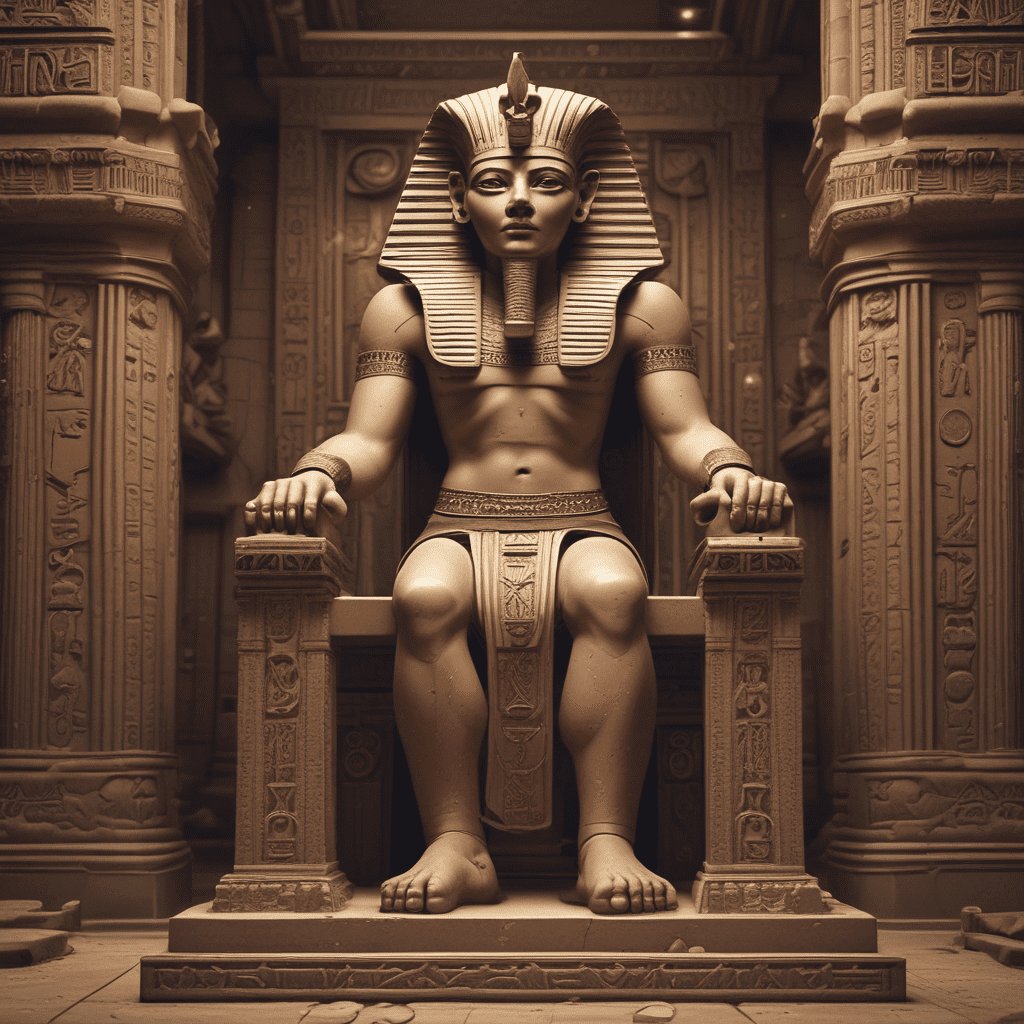The Myth of the God Hapi in Egyptian Mythology
Who is Hapi in Egyptian Mythology?
Hapi, also spelled Hapy, was a significant deity in Egyptian mythology associated with the annual flooding of the Nile River, a crucial event for the fertility of the lands. Hapi was often depicted as a masculine figure with breasts, symbolizing abundance and nourishment.
Role and Symbolism of Hapi
Hapi was considered the god of the Nile inundation, credited with causing the floods that left rich silt and allowed agriculture to thrive in ancient Egypt. The annual flooding of the Nile was essential for fertility and the prosperity of the civilization along the river.
Depictions and Worship of Hapi
Artifacts and inscriptions portraying Hapi often highlight the god carrying offerings and plants, representing the fertility and abundance brought by the flooding Nile. The ancient Egyptians honored Hapi through rituals and festivals, thanking him for the life-giving waters.
Significance and Legacy of Hapi
The cult of Hapi and the veneration of this deity played a pivotal role in Egyptian society, promoting the belief in the cycle of renewal and revitalization brought by the river’s floods. Hapi’s association with nourishment and sustenance made him a revered figure among the ancient Egyptians.
FAQs about the Myth of the God Hapi in Egyptian Mythology
Who is Hapi in Egyptian mythology?
Hapi is the ancient Egyptian god of the annual flooding of the Nile River. He was considered a symbol of fertility and abundance in Egypt.
What was Hapi’s role in Egyptian mythology?
Hapi was believed to bring the silt and nutrients that enriched the soil during the Nile’s inundation, ensuring bountiful harvests for the Egyptians.
How was Hapi usually depicted?
Hapi was typically portrayed as a deity with a man’s body and the false beard of a god. He was often shown carrying offerings or symbols of abundance.
Was Hapi associated with any other aspects of nature?
Aside from the Nile’s flooding, Hapi was also connected with the north and south of Egypt, symbolizing the unification of the country.
What significance did Hapi hold in Egyptian society?
Hapi’s importance lay in the vital role he played in the agricultural prosperity of Egypt, making him a revered and worshipped deity in ancient Egyptian culture.





